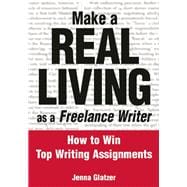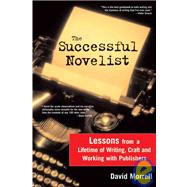Freelance Writers Need to Have Both Traits
This freelance writing blog post should be a little bit shorter than many of the others, as anyone who has read my last blog post on Insane Freelance Writing Goals will know that "full" doesn't even begin to describe my plate right now. And if you haven't read that post, go ahead and do so. It's a good one . . . might even make my Hall of Fame post list for this blog, but we'll wait and see on this one. Even though I can't really afford to spend two hours rambling, I like this blog and I like you guys so who knows? :)While I kind of wish I had my full Demand Studios Review finished, this post should be fine without that one - which will be one of the next posts because I believe it's very relevant to writers looking to make a living freelance writing online. But we'll move on to the two freelance writing traits I think successful writers need to have (and know how to balance) and see what happens from there.
The first trait I definitely think good writers need to have is tunnel vision. I've heard that when a predator like a big cat (cheetah, panther, etc) sees some prey and begins to charge, that the cats literally lose their peripheral vision and literally only see what they're focused in on. This is well documented in police or soldiers stuck in a close quarters gun fight. Tunnel vision is something that can be very effective for writers, and sometimes I think is just outright necessary.
The last blog post I made about my ridiculous freelance writing goals for March is a prime example. There is NO possible way to come even remotely close to those goals unless I'm spending virtually every day in March 100% focused, tuned in, and spending every spare waking moment pursuing my goals. Believe me, after this blog post is done I'll be doing the absolute minimal of promoting, and then I'm immediately going back to Demand Studios to knock 3 more articles out before midnight, at which point I'll be writing some articles for back links to both my new Hubs and InfoBarrels, but also to the pages my brother and I's business.
And since I've figured out I'm at my best staying up to 5 am and then sleeping to 10:45 a.m. I'm sure there will be another Xomba article, Squidoo lens, or something going up. If it's one of those nights I get exhausted early, I'll work on my creative writing since that always fires me up and rejuvenates me. One way or another, there's not going to be any watching TV, no surfing the web mindlessly looking at NFL draft news, and the XBox 360 is staying turned off. Because I have a whole lot of work to do.
Tunnel vision is the only possible way I'm going to get anywhere close to nailing my March freelance writing goals. And so far in the first 3 days, I had a little bump this morning, as it was just one of those days where I REALLY, REALLY didn't feel like doing any writing. But I started grinding through, I reminded myself of why these goals were so important to me, and by late afternoon I was back on track again. And it happened by just focusing on the next job. And then the next. And then the next.
Basically I tunnel-visioned it one article at a time until my freelance writing was back full speed ahead. One problem with ridiculous ambitions is they can crush you, but one article should never be intimidating. Thank you freelance writer tunnel vision!
The second thing I wanted to touch on really briefly is being able to just walk away from a job when the situation isn't worth it. Now this is one of those bits of advice I have to add an asterisk to or add a note of caution with. Many beginning freelance writers (and I certainly am no exception to this) start out working under value as they learn the ropes and improve their skills. But there are going to be times where a job goes bad. There can be several reasons for this. The most common for me are:
- A ridiculous amount of work being asked done for not nearly enough compensation.
- A severe lack of professionalism, rudeness, or disrespect.
- Any worried feeling that throws up red flags.
Now here is the reason I wish I had done the Demand Studios Review before this section, because all in all I like writing for them, and believe there is a lot there for beginning writers, as well as even for intermediate and experienced writers as a side source of online freelance writing income. There's a lot of good with that site, especially when you figure out the right styles that match your writing style as well as the right mentality to have dealing with editors (because that's where most of the complaints come from and where most of my issues crop up). So I'll have to cover that later. Just understand that overall I DO like Demand Studios as part of a freelance writing income, so don't let the following scare you off, just take it as an honest review.
Most of the Demand Studios editors I deal with are reasonable or respectful. A couple are either jacka**es or totally insane. Or don't know their own guidelines they are supposed to be enforcing.
Most of the time this isn't an issue. This is when the decision has to be made. For a $7.50 article I'll gladly spend 15 minutes writing. I'll even check one that's been flagged for revision to see what's amiss. If the editor's comments for what I have to fix are four paragraphs long, I hit the "save draft" button and let the assignment expire. It's not worth the time.
This is hard for some people. But if you've already committed work, how can you just throw away that time? Better 15 minutes than 1 hour or more...especially if after an hour the article is a complete re-write, meaning that it may or may not get accepted anyway. It's smarter to write a new $15 or $20 article during that time.
If the editor goes on a long rant about how to write an article correctly, demanding a lot of changes that actually go AGAINST the DS guidelines for writing for specific companies, I also simply let the assignment expire. It's not worth my time or the headache.
Now most of the time this isn't an issue, and any revisions that take 10 minutes or less I'm more than happy to do the work, because at that point it's 1, 2, 5, or 10 minutes for $7.50, $15, or $20 in pay. If the editor wants a ridiculous amount of work, it's just not worth it and I let the assignment expire.
The first few months, this was REALLY hard for me to do. But I realized a few things:
- An abandoned rewrite looks a lot better than a rejected article, and causes less stress and frustration for me personally.
- As long as this is a tiny % of my total articles, it doesn't really matter in the big picture.
- I'm more efficient just ignoring the jobs that have become albatrosses.
- I'm probably putting jerk or incompetent editors on the hot seat by allowing the articles to go unedited.
In the end, part of creating the best possible freelance writing career is knowing when to do the work and when to simply walk away. So if you ever experience a combination of #1 and #2, walk away from that article and move on to another. I generally have about 20% of my articles sent back for a re-write at Demand Studios, but the far majority of those are little details that are legitimate, or even if it's an opinion difference, it's work that takes all of 1-10 minutes to fix and get paid, so that's fine.
So there you have it. Tunnel vision and walking away. They seem contradictory, but these are two skills that advanced and successful writers need to have.











What is up with DS, anyway? I was accepted as a writer several weeks ago and they still have not approved my bio? IYO, is it even worth the time?
ReplyDeleteHi Prudence,
ReplyDeleteI'm not sure. I know there are a lot of people who have experienced issues in the past. I remember my bio taking some time to get approved, but I don't believe that affected my ability to write for them. If it does, then you will want to send a polite note to try and nudge the process along. While there are a lot of writers who have had issues, and Demand Studios is not perfect by any stretch of the imagination, but I do believe they are definitely worth the time to get used to. It can't be a little rough learning the ropes, but they're basically always there for $15, $20, or even $30 an hour for me whenever I need to do some extra work for income, or have some dead time because other jobs fell through. There will be annoyances and irritations, but in my opinion it is definitely worth the time and effort to try and make DS work for you.
Thanks, as always for the advice. You're the man.
ReplyDeleteMuch thanks :)
ReplyDelete